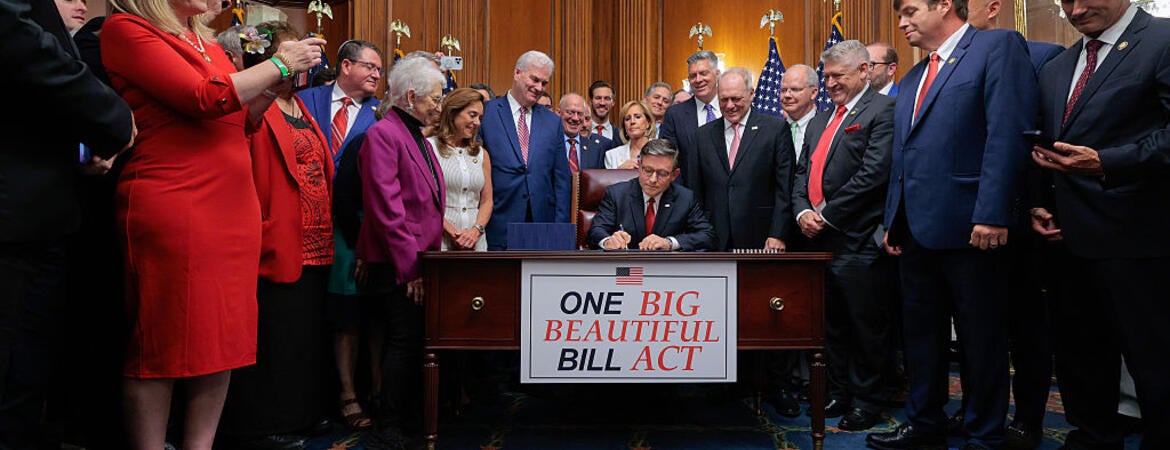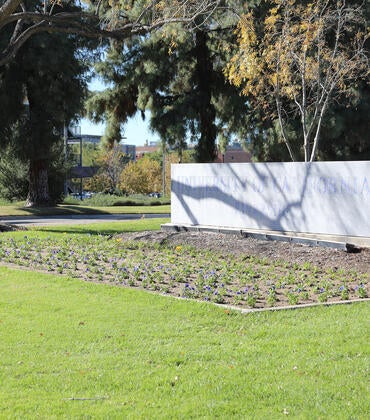The broad-sweeping reconciliation measure — branded by President Trump as the "Big Beautiful Bill" — passed both chambers of Congress by slim margins this past week: 51-50 in the Senate, and 218-214 in the House. The bill will impact higher education in myriad ways, according to higher education partner organizations of which the UC system and UC Riverside are affiliated. Key impacts include for undergraduate and graduate student borrowing, taxing on institutional endowments, and clean-energy credits that were part of President Biden's Inflation Reduction Act.
Here is a roundup of these organization's assessments:
American Council on Education (ACE): ACE's assessment applauds the success of higher education associations and leaders in improving a "deeply flawed House bill." It decries expected impacts of Medicaid changes that will affect low-income students and their families. It also bemoans the impacts of endowment taxes, pointing to muted impacts due to Senate changes. It applauds the Senate's decision to curtail House proposals that would have had far-reaching impacts for Pell eligibility, a success ACE attributes in part to advocacy from the higher education community.
Association of Public & Land-Grant Universities (APLU): A chart compiled by the APLU compares and contrast's the House's proposed bill, versus the ultimate bill passed by the Senate. The chart helps emphasize the reduced higher education impacts of the Senate's version of the reconciliation act, including for measures such as a House version that would have eliminated Pell Grants for students enrolled less than than 15 hours per semester. It also includes measures introduced by the Senate, including an expansive provision that calls for undergraduate and graduate programs to lose eligibility for federal student loans if graduates don't meet certain earning thresholds.
Association of Governing Boards of Universities and Colleges (AGB): AGB presents an overview of the bill, and also a list of implications and recommendations for the governing boards of universities. It states: "This is a pivotal moment for higher education governance. The changes in the reconciliation bill will reshape the federal student aid landscape, institutional accountability, and student access for years to come."
Finally, the University of California Office of the President weighed in on the reconciliation bill by stating "Overall, the bill would cause significant harm to student financial aid, Medicaid, and basic needs programs that our communities depend on."




